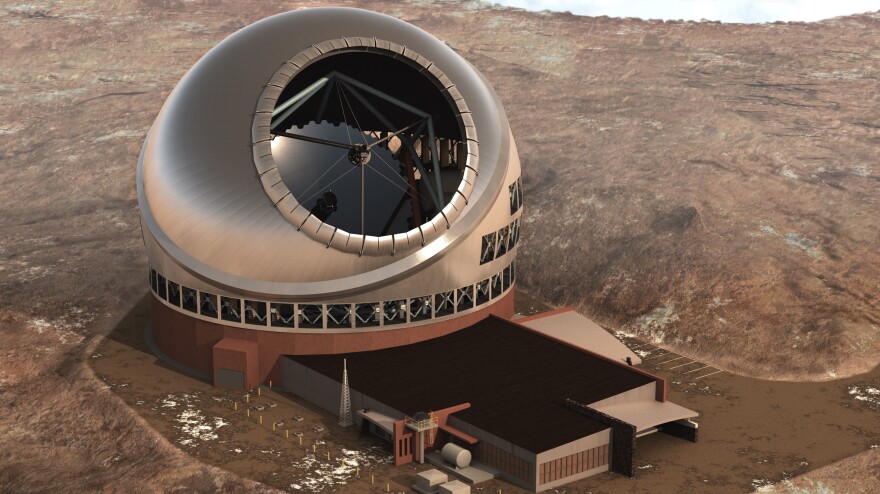Maunakea Observatories have been been closed for three weeks now – resulting in a loss of more than a year’s worth of discoveries. Scientists say unreliable access to telescopes is preventing them from resuming operations on the summit.
More than 2,000 hours of observing time on nearly 400 projects have been lost since telescope operations were suspended in mid-July, according to Maunakea Observatories. The observatories temporarily shut down at the height of the standoff between protesters and law enforcement over the construction of the Thirty-Meter Telescope.
"This is the longest time the Maunakea Observatories have been off sky in the 50 years of astronomy in Hawai?i," said Jessica Dempsey is deputy director of the East Asian Observatory, which operates the James Clerk Maxwell Telescope.
Dempsey is part of the global team of astronomers that captured the first image of a black hole. Dempsey had planned to install a telescope instrument to help improve imaging for the second round of black hole hunting. But she says ongoing protests are preventing that.
"We are already behind in getting it ready for the next round of Event Horizon Telescope observations. So having this delay in not being able to get it up there has put us under severe time constraints."
Access to the summit, as Dempsey understands it, requires negotiations between state agencies and leaders of a group calling themselves kia?i or protectors of Mauna Kea.
"It does take time and so that has been you know quite difficult. Our regular operation is far in excess of what we’re doing now so this is one of the many reasons why we have been unable – as of yet – with this system in place to return to our regular observing" she said,
Public access to Mauna Kea has been closed by the state to make way for TMT construction. Opponents set up a blockade at the bottom of Mauna Kea Access Road and state law enforcement officers set up a checkpoint just above that.
"The road closure is being maintained by the state, it is not us," said Lanakila Mangauil is a leader with the group of protesters who believe the mountain is sacred.
"The only one that we are committed to blocking access to is machinery of the TMT for further desecration."
The state Department of Land and Natural Resources says an agreement to allow observatory staff and contractors to conduct needed services at Hale Pohaku is still in place. In exchange, some cultural practitioners have daily access to the mountain. But Mangauil says access is extremely limited.
"We’re allowed one vehicle a day to be able to go up for cultural practice which is a problem considering that we have constitutionally protected rights of access to this mountain," Mangauil.
The state hasn?t made clear how it plans to address scientists’ requests for regular and scheduled access and it’s still not known what steps are being taken to resolve the standoff long-term.


